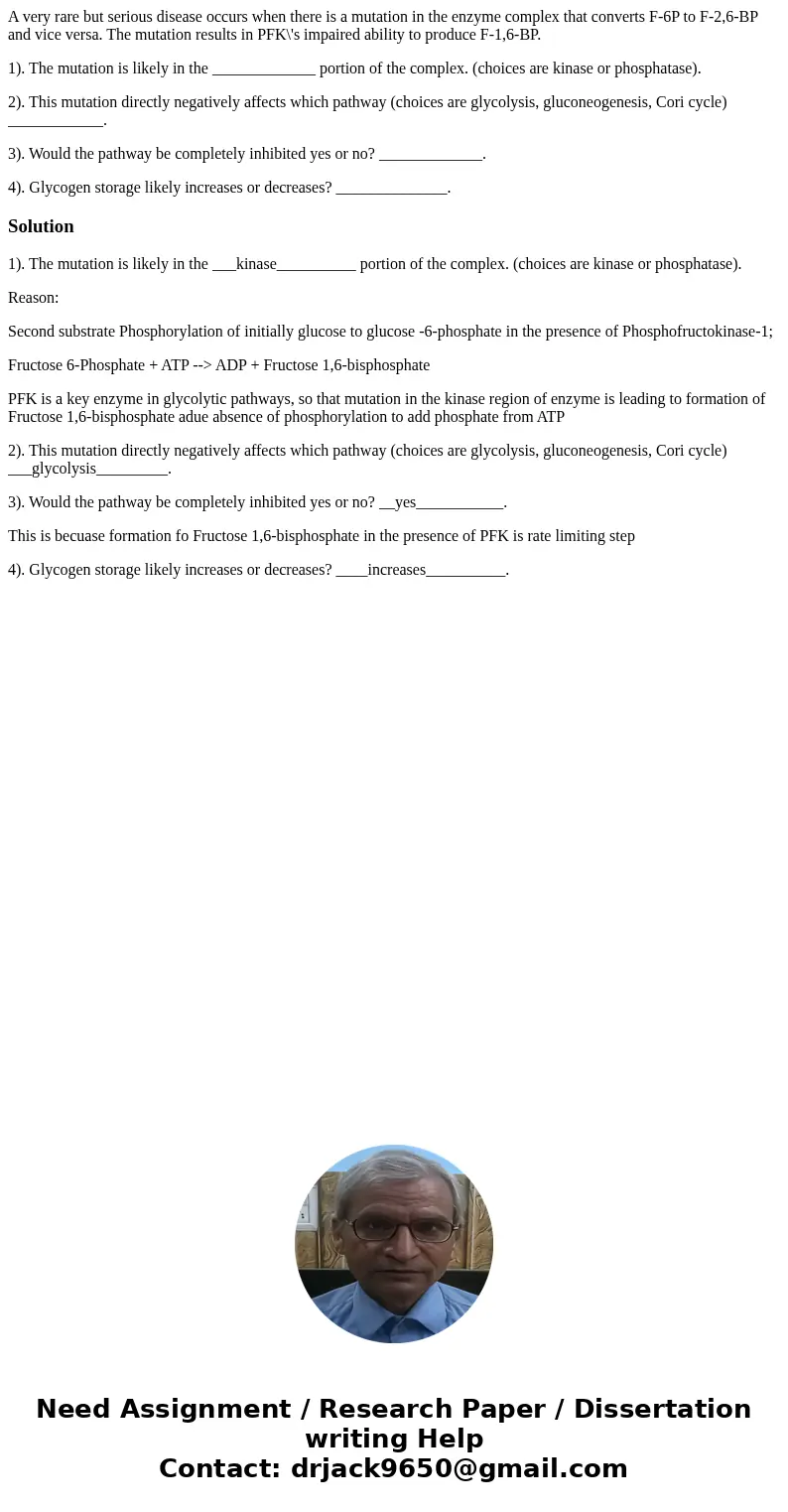A very rare but serious disease occurs when there is a mutat
A very rare but serious disease occurs when there is a mutation in the enzyme complex that converts F-6P to F-2,6-BP and vice versa. The mutation results in PFK\'s impaired ability to produce F-1,6-BP.
1). The mutation is likely in the _____________ portion of the complex. (choices are kinase or phosphatase).
2). This mutation directly negatively affects which pathway (choices are glycolysis, gluconeogenesis, Cori cycle) ____________.
3). Would the pathway be completely inhibited yes or no? _____________.
4). Glycogen storage likely increases or decreases? ______________.
Solution
1). The mutation is likely in the ___kinase__________ portion of the complex. (choices are kinase or phosphatase).
Reason:
Second substrate Phosphorylation of initially glucose to glucose -6-phosphate in the presence of Phosphofructokinase-1;
Fructose 6-Phosphate + ATP --> ADP + Fructose 1,6-bisphosphate
PFK is a key enzyme in glycolytic pathways, so that mutation in the kinase region of enzyme is leading to formation of Fructose 1,6-bisphosphate adue absence of phosphorylation to add phosphate from ATP
2). This mutation directly negatively affects which pathway (choices are glycolysis, gluconeogenesis, Cori cycle) ___glycolysis_________.
3). Would the pathway be completely inhibited yes or no? __yes___________.
This is becuase formation fo Fructose 1,6-bisphosphate in the presence of PFK is rate limiting step
4). Glycogen storage likely increases or decreases? ____increases__________.

 Homework Sourse
Homework Sourse